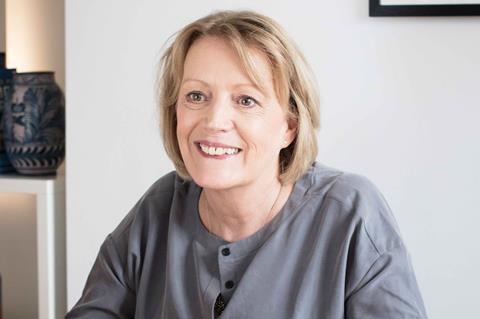Experiences with grief highlight the need for workplaces to improve their support for bereavement, writes Louise Rodgers

One of the tasks of a coach is to ‘hold space’ for people to bring to a session anything and everything that they need, or want, to bring. Every coaching session is confidential; it is a creative conversation between the two participants; and coaches are ethically bound to respect that confidentiality.
This means that a coaching session can sometimes veer off in unexpected directions. We coaches then have to ‘dance in the moment’; literally think on our feet and go with the flow, responding to what the client needs at that time.
For this reason, sometimes the issues that show up in coaching go beyond the day-to-day and into more existential areas (although I would argue that the two are deeply connected). This means that as a coach I have to be prepared to let a conversation, for example about deeper purpose or meaning, unfold; and, if necessary, reassure the client that such a conversation is a completely legitimate use of the allotted coaching time.
Perhaps because we implicitly invite this kind of conversation in, there have been several times in the past few months when the impact of a bereavement has come into my coaching sessions. And each time, partly because it’s clear that the person really needs to talk about it, this has given me cause to think about how we deal with bereavement and grief in the modern workplace, and whether we are doing this well enough.
My experience is that most workspaces recognise this as a very difficult experience requiring empathy and compassion but that sometimes this doesn’t go far enough. The invitation to take time off (there is no legal requirement to paid time off for a bereavement, unless it is for the loss of a child, which seems a strange omission in employment law) is often expressed in terms of ‘take as much time as you need’. But how much time do we need? And when do the emails start creeping in, asking us when we are planning to be back in the office? And when we are back, are we expected to be ‘back to normal’?
There is no time limit on grief, and this is something I would like to see given greater consideration in the workplace. We may deal with the practical considerations within a week or two, but grief is not a linear process. When a loved one dies, whether it is sudden or anticipated, we may lurch between bouts of sadness for much longer than we, or anyone else, including our employer, expected.
We can find ourselves less able to deal with everyday stresses at work, and our behaviour can vary from the kind of behaviour that people who have worked with us for a long time have come to expect
This will be impacted by the relationship we had with the person who has died; sometimes a more complicated relationship will result in a more complicated grieving process.
We can find ourselves less able to deal with everyday stresses at work, and our behaviour can vary from the kind of behaviour that people who have worked with us for a long time have come to expect. Lapses in concentration, anxiety, unpredictable mood swings, overworking, not taking care of ourselves; all these can be symptoms of grief.
This is not helped by the fact that we have yet to normalise conversations about grief. Ironic, given that, along with taxes (as the saying goes), it is the only inevitable thing about life. Indeed, people sometimes go out of their way to avoid having any conversation about death, dying, and bereavement, at all.
When my own mother died almost three years ago, I had committed to do an online training course a couple of months later. As with most coaching training, it went deep and required vulnerability. A year later I applied to do the same course again and was gently reminded that I had already done it. In the fog of grief, I had absorbed nothing at all.
Partly because of my own experience I have recently completed a foundation course in end-of-life and dying, designed for people who want to become a ‘death doula’ (yes, it is a thing). I don’t yet know whether I will continue to the full diploma course, but I learned so much during that week, including about the psychological impact of grief and grieving. It was a truly enriching experience.
One of my biggest takeaways was that we need to accept death and grief as the universal human experiences they are and each do what we can to enable fearless conversations to take place about their impact, whether this is in our homes, in our community and social spaces, or in our workplaces.
There is already a growing movement of Compassionate Communities, networks of people supporting each other to live fully before we die. This includes helping people to feel ready, willing, and confident to talk about death and dying, and better equipped to support each other in times of crisis and loss.
Let’s be part of it. For, in the words of Professor Allan Kellehear, a medical and public health sociologist who has argued for greater community involvement in supporting people who are dying, “Grief is a forever thing and requires forever strategies”.
Postscript
Louise Rodgers is Building Design’s professional coach. A personal and business coach, she co-created and co-delivers Step Up, a leadership development programme for built environment consultants.
Do you have a question for Louise? If so email louise@eidyia.co.uk. She will use the most interesting in her columns but cannot enter into individual correspondence.
















No comments yet